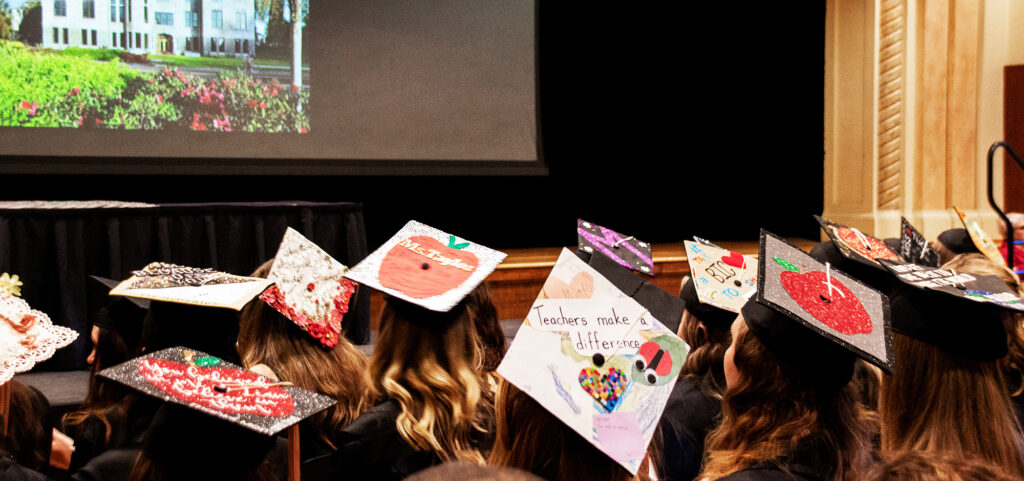
Graduating College of Education students,
Save the date for this year’s 2021 Commencement which will take place on Saturday, June 12 for Corvallis and Ecampus students. The virtual events will begin with the university’s main commencement celebration from 10:30-11:30 a.m. PDT, followed by pre-recorded school and college ceremonies. The OSU Cascades commencement will take place on June 13 at 9:00 a.m. PDT.
Although virtual, we commit to enable engaging, student-driven Commencement events with personal touches that allow you to be featured if you choose to participate this way. Visit commencement.oregonstate.edu for more information.
> Celebrate with the College of Education with #OSUCoEdGrad and win!
Let’s celebrate together. When you post your grad photos on Instagram, Facebook, or Twitter, use the hashtag #OSUCoEdGrad and tag @osucoed.
Those who tag us and use the #OSUCoEdGrad will be entered into a SWAG giveaway. The 3 random winners will be contacted and mailed College of Ed SWAG items
> Submit a video by May 15th and win a prize!
Represent the college and be highlighted in the college’s virtual commencement video. The University is looking for students to submit a very short video clip (film horizontally) and answering one of the questions below in a complete sentence. Submit videos to maia.farris@oregonstate.edu by May 15th and be entered to win a SWAG giveaway. If you have questions, please email maia.farris@oregonstate.edu
- Why are you excited to be a teacher, counselor, leader in education, and/or change agent?
- What album, book, or movie has shaped who you are as a person?
- How have you surprised yourself while in college?
- What goal have you achieved that felt really far away your first year in college?
- What was the best class you took in college, and why?
- What’s something that you loved doing as a kid that you still love doing as an adult?
- Best place to study on campus?
- Make up your own question/answer
> #BeaverGrad checklist:
- Confirm your degree
- Update your address to receive a celebration package from the University that contains a cap, tassel and diploma case
- Register for Commencement through GradPak by May 15th
- Use the #BeaverGrad and #OSUCoEdGrad on social media
- Join in the OSU Alumni Association Countdown to Commencement activities and win giveaways at osualum.com/classof2021.
- After degrees are conferred, you will be contacted regarding ordering your diploma. More details can be found here.
Congratulations on this big achievement, class of 2021 Beavers. You’re the next generation of teachers, counselors, researchers and leaders in education.
Join the quarterly Alumni Newsletter and follow us on social media to stay in the loop about upcoming community events, professional development, and more. Please keep in touch and let us know where you are and what you’re doing. We’d love to feature you in an upcoming newsletter!
Website | CoEd Blog | Twitter | Facebook | Instagram
Sincerely,
Susan K. Gardner
College of Education, Dean


